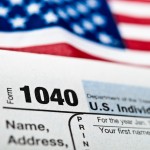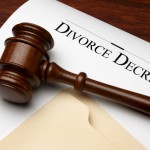Required Documents – What to Bring to Attorney Walter Metzen at your initial Bankruptcy Consultation
The filing of a bankruptcy petition in Michigan requires that you produce certain documents for your bankruptcy trustee to examine to determine, among other things, if you are eligible to file and to verify the value of the assets that you have disclosed in your bankruptcy petition. For the most part, my office, as well as the bankruptcy court, needs the same documents whether you are filing a Chapter 7 or a Chapter 13 Bankruptcy. If you are filing bankruptcy with my office, we will forward the documents you supply to us to your bankruptcy trustee as part of our service. Copies are OK. We do not need your originals.
What documents does your attorney need to prepare your Michigan Bankruptcy filing?
The bankruptcy trustee will need to see government issued photo identification as well as your social security card to verify your identity.
1. Proper Identification: Driver’s License or state ID and Social Security Card (or W2 with your Social Security # on it.) The bankruptcy trustee will need to see government issued photo identification as well as your social security card to verify your identity.
 2. Tax Returns for the past two years. Generally we need copies of your last two years Federal tax returns. As your bankruptcy attorney, I need the returns to help determine if you should file bankruptcy in the first place, and if so, which Chapter. The bankruptcy petition requires that you list your last 2 years income, which I usually obtain from the tax returns. Your trustee will also want to verify your income, as well as any possible tax refunds that you may be entitled to. If you are on social security or have otherwise had insufficient income so as not to be required to file tax returns, my office will help you file an affidavit, which can be used for bankruptcy court purposes. Some Chapter 7 Trustee’s require your State of Michigan income tax return as well.
2. Tax Returns for the past two years. Generally we need copies of your last two years Federal tax returns. As your bankruptcy attorney, I need the returns to help determine if you should file bankruptcy in the first place, and if so, which Chapter. The bankruptcy petition requires that you list your last 2 years income, which I usually obtain from the tax returns. Your trustee will also want to verify your income, as well as any possible tax refunds that you may be entitled to. If you are on social security or have otherwise had insufficient income so as not to be required to file tax returns, my office will help you file an affidavit, which can be used for bankruptcy court purposes. Some Chapter 7 Trustee’s require your State of Michigan income tax return as well.
3. Income Information: Pay-stubs, social security or unemployment compensation information and other proof of income. If you are an employee, my office as well as your bankruptcy trustee will need to your pay-stubs from the past 60 days and occasionally six months worth. Many of my clients these days actually pull them online and print them out or email them to me. If you are not working or are self-employed, obviously you cannot supply pay-stubs. In those cases, bank statements that show social security deposits or profit and loss statements from your self-employment or business income will suffice.
4. Real Estate Documentation. If you own your home or other real estate you will need to provide your deed, recorded mortgage, SEV and mortgage balance statement to ascertain if you have any equity in that real estate. Real estate documents may include a recorded deed (warranty or quit claim), recorded mortgage, recent mortgage balance statement and a property tax bill or SEV-State Equalized Valuation. If you own real estate (typically your house), both me as your bankruptcy attorney and your trustee will want to see various documents to verify who owns the property and how much you paid for it (deed), whether the mortgage(s) was properly recorded by the bank or mortgage company (recorded mortgage), how much is still left owing on the property (mortgage balance) and something evidencing the value of the property (property tax bill or SEV). These documents tend to be the most difficult for my clients to obtain so I try to get them online whenever I am able to. I can generally find them online for clients who own real estate in Wayne, Oakland and Macomb counties of Michigan.
5. Vehicle Titles for cars you own or are purchasing-not leasing. You will also need the Secretary of State titles for manufactured homes, boats, motorcycles and recreational vehicles you may own. Your bankruptcy trustee needs to look at them to verify whether or not the creditor perfected their lien(s). Contrary to what many people think, you do not need to have paid off the vehicle in order to get the title in Michigan. If you cannot locate your title, go to the Michigan Secretary of State and apply for a duplicate title.
6. Bank Statements. Most trustees in Michigan will want to look at your bank statements for the two or three months prior to your bankruptcy filing date and will sometimes want to see the balance in your accounts (checking and savings) on the exact date you filed to compare it to the amount you disclosed in your bankruptcy schedules. One of my main goals when I prepare a bankruptcy is protecting those funds using appropriate bankruptcy exemptions. Some trustees will request bank statements for the six-month period before you filed your bankruptcy case. They may question out of the ordinary activity or unusually large deposits or withdrawals and require and explanation.
7. 401K and Pension Plan Statements, Stock Certificates, Bonds, Life Insurance Policies with cash value, Annuity Savings plan statements, etc. If you have any type of 401K, 403B, annuity or other pension plan, you must disclose the amount in that plan in your bankruptcy schedules and provide a statement to your bankruptcy trustee so that he or she can verify the amount in your pension plan. Many employer pensions do not state an amount other than the fact that you will receive a monthly stream of payments upon your retirement. 401K plans and brokerage accounts will show a dollar amount that has accumulated in the account. You will need to obtain the most recent statement. Your 401k and other pension plans will generally be exempt from creditors in your bankruptcy but, nonetheless, documentation regarding these plans must be supplied to your trustee to verify that they are qualified plans.
8. Divorce Judgments. Bankruptcy trustees where I practice in Michigan will want to see a copy of your divorce judgment or decree if you have been divorced in the 5 years before you filed your bankruptcy. Among other things, they are generally looking for property settlements that might still be unfulfilled and owing to you pursuant to the divorce judgment. It may also contain clues at to what property you may have owned in the past and might prompt the trustee to inquire what the disposition of that property was.
Why does the Bankruptcy Trustee need all of these Documents?
Bankruptcy is a Federal Law and when a petition is filed, you have a duty to provide certain financial records in exchange for a Federal Court Bankruptcy Discharge Order that permanently prohibits your creditors from ever collecting the debt you owe them.
Bankruptcy law here in Michigan is very document intensive. Both Chapter 7 and Chapter 13 require that you provide certain documents, but in Chapter 13, the documents are usually limited to your 6 months most recent pay stubs and Federal income tax returns for the previous 2 years. When you file a Chapter 7 bankruptcy case, you will also be required to produce documents related to your income such as pay stubs and tax returns so that your bankruptcy Trustee and the United States Department of Justice Attorneys, can determine that you do, in fact, qualify for a Chapter 7 bankruptcy. Additionally, because a Chapter 7 Trustee’s job is to investigate your assets and to liquidate any non-exempt assets for the benefit of your creditors, your Trustee will also want various documents relating to your assets such as real estate documents, car titles, bank statements, retirement statements, brokerage account statements, life insurance documents, etc.
These documents must be provided to your Trustee no later than 7 days prior to your Section .341 Meeting of Creditors so that the documents can be reviewed prior to your hearing. All Chapter 7 Trustees utilize one of three possible portal sites for the uploading and retrieval of the necessary documents. My office will upload and provide those documents to your particular Trustee, but I depend on you to provide those documents to me in a timely manner so as not to delay your Bankruptcy Discharge Order.
How to Provide Bankruptcy Documents to my Office
Your Bankruptcy Trustee will need the necessary documents in a clear legible format and neatly organized. My office will prepare and label the documents and convert them to PDF format if you do not have a scanner. All documents submitted to the Trustee’s portal, must be in PDF format.
Here is an example of a typical email I receive from a Trustee’s office a few days after a client’s bankruptcy case is assigned to them:
All Debtors are required to produce the following documents at least seven (7) days prior to the 341 Meeting of Creditors:
- Copy of driver’s license(s)/ State ID;
- Copy of social security card(s);
- Income Tax Returns (including all W2’s and schedules) for the past two (2) years, including present year;
- Pay stubs (or social security/disability income) and any other proof of income for the past three (3) months preceding the commencement of the bankruptcy petition;
- Copies of all financial account statements and cancelled checks on all accounts in Debtor’s name for the past three (3) months preceding the commencement of the bankruptcy petition (must include the statement that reflects the balance on day of filing);
- A copy of the title or vehicle registration for any vehicle(s) listed in Debtor’s name;
- The declaration page to any life insurance policies listed in your name;
- Most recent retirement account (401k), 403(b), IRS, Pensions, etc.) statements;
- Recorded Mortgage(s) (you can obtain these from the county register of deeds office);
- Recorded Mortgage Note sign and dated;
- Recorded Deed(s) (you can obtain these from the county register of deeds office);
- Real property tax bill statements for present year (showing State Equalized Value); and
- Proof of homeowner’s insurance.
For individual documents such as Photo ID (Driver’s License), Social Security Card and a car title, you may take good quality photos with your cell phone (jpegs) and email them to me. Please limit the photos to one- or two-page documents and be sure that the papers are not folded or wrinkled and try to avoid any background items such as hands, beverage cans or bottles, pets, etc.
For documents with multiple pages such as income tax returns or bank statements, most of time, my clients have them already in an electronic PDF Format and can simply email those to me as an attachment. If they are in paper form, either scan them in using your own home scanner or even using your cell phone as a scanner with the various scanning apps available such as Turbo Scan and email the PDF to my office. If you do not have access to a scanner or are otherwise unable to scan the documents, they can be faxed to my office at 313-962-4241, dropped off in person or into my locking mail box in my Royal Oak office or mailed directly to the main office at 30448 Woodward Ave., Royal Oak MI 48073.
You can always call me to schedule an in-person appointment to bring in the documents and I can quickly run them through my high speed scanner.
.341 Hearing or Section 341 Meeting of Creditors
Bankruptcy Court procedure on the day of your .341 Hearing also called the Bankruptcy Meeting of Creditors. Be sure to come 30 minutes earlier and to bring your original Driver’s license and Social Security card. The Trustee assigned to your case will review the bankruptcy documents related to your finances and ask certain questions regarding your financial affairs at this hearing.
You will be asked the following questions after being sworn in:
- Please state your name and address and the last 4 digits of your Social Security Number.
- Did you sign your Bankruptcy petition?
- When you signed the Bankruptcy petition was information contained therein true and accurate?
- Is the information still true and accurate today? Tell the Trustee if there are any changes to your income, expenses, assets or your address for example.
- Please verify your signatures.
- Are most of your debts more than 6 months old?
- Did you read, review and understand the Bankruptcy Information Sheet provided by the United State Trustee’s Office?
- Did you list all of your creditors in your bankruptcy schedules?
- Did you list all of your assets in your bankruptcy schedules?
If creditors should appear on your case, be prepared to briefly answer their questions pertaining to the use of their credit. The entire hearing usually takes no more than 5 minutes.
The 341 Meeting of Creditors is a mandatory hearing held in the Michigan Chapter 7 and Chapter 13 bankruptcy process.
It is an opportunity for your creditors and the Chapter 7 Trustee or Chapter 13 Trustee to ask you questions about your income, your expenses, your debt, your assets, and the documents you filed in your bankruptcy case.
Depending upon in which Federal Bankruptcy Court you filed your case, and which Chapter, it will be held in different locations. (Or, post-COVID, telephonically or via Zoom or other video conferencing platform.)
The 341 Meeting of Creditors is not a judicial hearing. Your Bankruptcy Judge will not be present. Instead, it is presided over by a Chapter 7 or Chapter 13 Trustee (or, in Detroit, a Chapter 13 Trustee’s staff attorney or even paralegal).
IMPORTANT REMINDERS REGARDING REMOTE 341 MEETINGS
- Be sure to KEEP YOUR PHONE ON MUTE until your Trustee calls your case.
- Be sure to CALL FROM A QUIET PLACE as your Trustee must record the hearing.
- DO NOT CALL FROM YOUR CAR WHILE DRIVING as this is unsafe distracted driving and your Trustee will likely not conduct your hearing. Your Trustee will want you to be engaged in the hearing, sitting down and paying attention to the Trustee questions.
- DO NOT PLACE YOUR PHONE ON HOLD as oftentimes music plays and disrupts the other hearings.
- Do not use a speakerphone or Bluetooth headset as the Trustees have difficulty hearing or recording the meetings.
- Speak in a clear, loud voice and answer the Trustee’s questions precisely and succinctly.
- If your hearing is being held via Zoom, be sure that you name the device that you use to call in with your name and that you have enabled both the audio and the camera as your Trustee will want to see you.
- This is a Federal hearing in which you will be sworn in under penalty of perjury. Take it seriously and tell the truth.
By Walter Metzen – Law Offices of Walter Metzen and Associates – Detroit Bankruptcy Lawyer.







